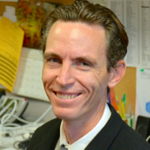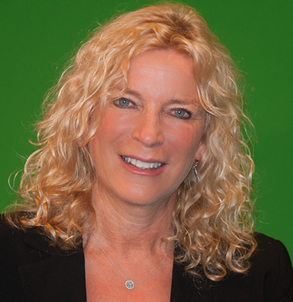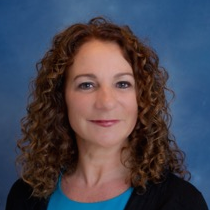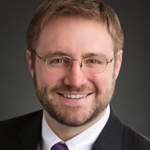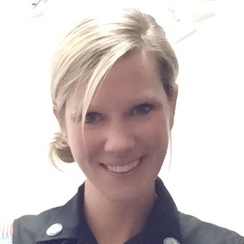Thursday, April 19
8:15 AM – 12:15 PM
Cost per person: $189.
By advance registration only. Select one of six.
Add $25 fee if you are not attending the conference.
All of the pre-conference workshops are now SOLD OUT.
SOLD OUT - 1. “Are You a Neuroteacher . . . Yet?”: The Science of Learning and the Future of Teaching and School Leadership Training
One of the universal truths of education is that every day each student will bring his or her brain, the organ of learning, to school. What if there existed an evidence-based professional growth framework that can help teachers and school leaders better understand how the brain learns? This workshop provides participants the opportunity to work with the internationally recognized Center for Transformative Teaching and Learning to bridge the gap between science of learning research and their daily practice. The science of learning is the most promising research being applied to close the teacher quality and student achievement gap. and puts teachers and school leaders at the forefront of research-informed professional development and classroom strategies. In this workshop, you will explore principles from the science of learning, and construct research informed approaches to address challenges and opportunities in their own classes or schools. You will leave the workshop having developed a personalized MBE professional growth plan using research-informed teaching and learning strategies. You will also leave with an understanding of the role of emotions and stress in the student and adult learning process.
Glenn Whitman, MALS, Director, Center for Transformative Teaching and Learning, St. Andrew's Episcopal School; and Ian Kelleher, PhD, Head of Research, Center for Transformative Teaching and Learning, St. Andrew's Episcopal School; both are Co-Authors of NEUROTEACH: Brain Science and the Future of Education (2016)
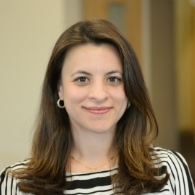
SOLD OUT - 2. Research for Educators and Practitioners on the Neuroscience of Reading Difficulties
This workshop will provide cutting-edge research updates on the science of reading across the range of ability levels. Topics will include how plasticity in the child's brain supports learning to read; how differences in brain structure and function are associated with reading disabilities, such as dyslexia; how effective reading intervention pairs with brain plasticity; and how behavior and socioeconomic status impacts reading. You will learn about the promise, potential, and limitations of neuroscience as it informs education ideas and practice.
Joanna A. Christodoulou, EdD, Assistant Professor at the MGH Institute of Health Professions, teaches at the Harvard Graduate School of Education, and is a Research Affiiliate at the Massachusetts Institute of Technology. She works at the intersection of education, clinical, and research contexts. She leads the Brain, Education, and Mind (BEAM) Team to study the brain and behavior links underlying reading development and difficulty. Current research focuses on reading intervention and summer reading growth. She was awarded the 2014 award for Transforming Education Through Neuroscience Award from the Learning & the Brain Foundation and the International Mind, Brain, and Education Society and was invited to join the first White House Workshop on Neuroscience and Learning.
SOLD OUT- 3. Transforming Our Teaching: Learning Foundations for Developing Culturally, Emotionally, and Academically Resilient Learners
Teachers everywhere face the daily challenge of engaging students whose temperaments, backgrounds, knowledge, and skills vary. It’s essential to recognize that not only do students bring their emotional, cultural and academic selves to our classrooms, but so do we. We may want to stay comfortable using our old methods of teaching and learning, but to move forward we need to use new ideas that can help us reshape our mindsets and develop new skill sets. In this highly interactive pre-conference you will learn how to Transform Your Teaching practice using down to earth solutions for the issues we face in today's culturally, academically and emotionally varied classrooms. We will bring together current research along with Learning Foundations that support our diverse students so they can develop the resilience, mindsets and skill sets they need both in the classroom and beyond. You will leave energized and ready to take action to transform your teaching and your classroom
Kathleen M. Kryza, MA, Master Teacher; CIO, Infinite Horizons; Co-Author, Developing Growth Mindsets in the Inspiring Classroom (2011) and Differentiation for Real Classrooms (2009); and MaryAnn Brittingham, MS, Professional Development Consultant; Graduate Course Instructor, State University of New York at New Paltz, Marist College, and Southern New Hampshire University; both are Co-Authors of Transformative Teaching: Changing Today’s Classrooms Culturally, Emotionally and Academically (2015)
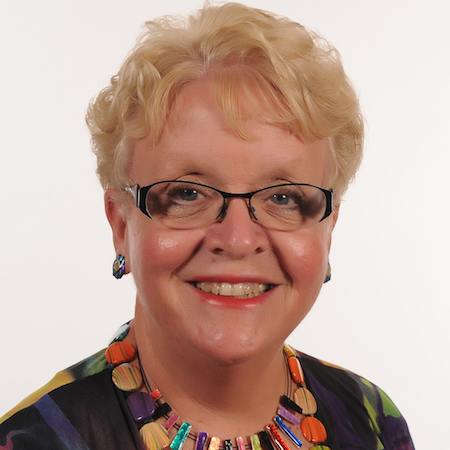
SOLD OUT - 4. Creating a Positive Mindful Environment for ALL Students to Learn
Our students are stressed and anxious. Teachers and parents are stressed and anxious, too. Our lives are busy, and we often find our thoughts buzzing over the past or worrying about the future. Press the “pause button.” We need mindfulness because it teaches us to live in the present moment, enjoying and experiencing what’s in front of us. Educators know that students learn best when they are comfortable, safe, and relaxed. Come to this workshop to discover and explore innovative and motivational opportunities for students to practice and extend their skills while facilitating independent learning.
Kathy Perez, EdD, Professor of Education; Director of Outreach and Professional Development, Saint Mary's College of California; Author, 200+ Proven Strategies for Teaching Reading, Grades K-8 (2016), New Inclusion: Differentiated Strategies to Engage ALL Students (2014) and More Than 100 Brain-Friendly Tools and Strategies for Literacy Instruction (2008)
SOLD OUT - 5. Creating a Teacher Wellbeing Program
How might we lead our schools to design well-being programs that work for us? Involving educators in creating their own well-being initiatives is a powerful way to build positive relationships and clarify purpose. In this interactive workshop, you will gain experience with a design process you can use to start (or evolve) a research-based program in your school or community.
Michael Schurr, MA, 3rd Grade Co-Teacher, Riverdale Country School; Learning Catalyst, PLUSSED+; Co-Creator, Design Thinking for Educators Toolkit; Charles Shryock IV, MA, Academic Dean, Bishop McNamara High School; Mentor, Google for Education Certified Innovator Program; and Rebecca Baelen, MS Ed, Doctoral Student in Education Policy, University of Pennsylvania; Co-Creator, Focus 5 (SERP, Baltimore City Schools, & Duckworth Lab at University of Pennsylvania, 2015); Author, “The Mindful Student” (Behavioral Scientist, 2017)
SOLD OUT- 6. The Neuroscience of Mindful Practice: Understanding How You Can Respond Rather than React
This workshop will introduce the Resilient Mindset Model as a framework for understanding the brain's natural response to challenge. Using this framework, the presenters will offer practical applications for the model through real-life examples and show how a broader understanding of the brain can enhance communication between students, teachers, and those in positions of authority. You will have the opportunity to apply these concepts to challenges that you face to enhance both your personal and professional development.
Donna M. Volpitta, EdD, Founder, The Center for Resilient Leadership; Author, The Resilience Formula (2000); and Michelle Palladini, BA, Founder, L.E.A.P. Program; School Resource Officer, King Phillip Middle School; Detective, Norfolk Police Department



